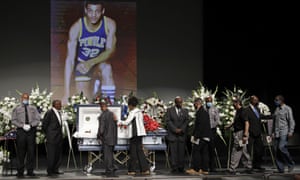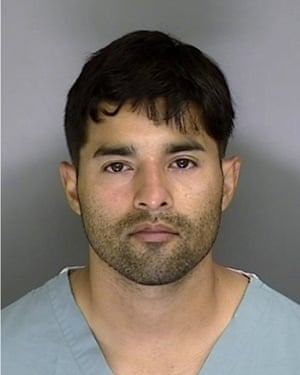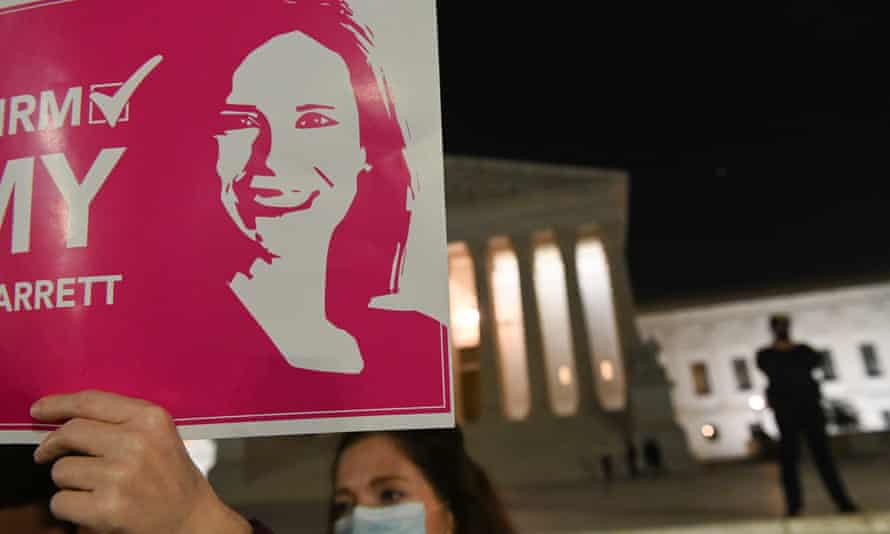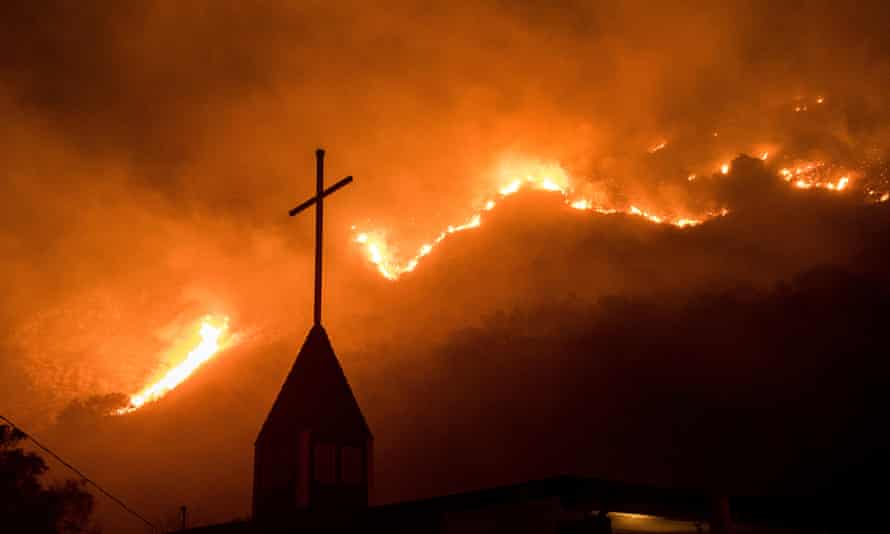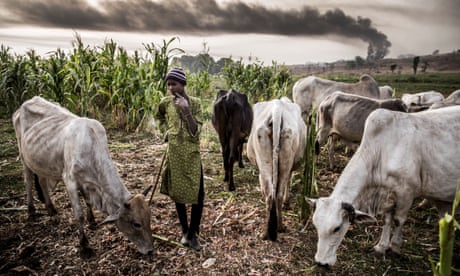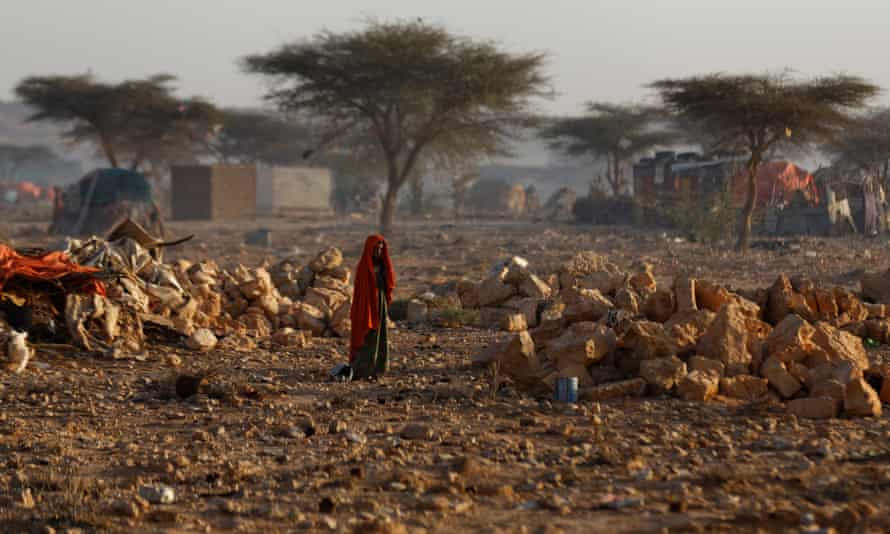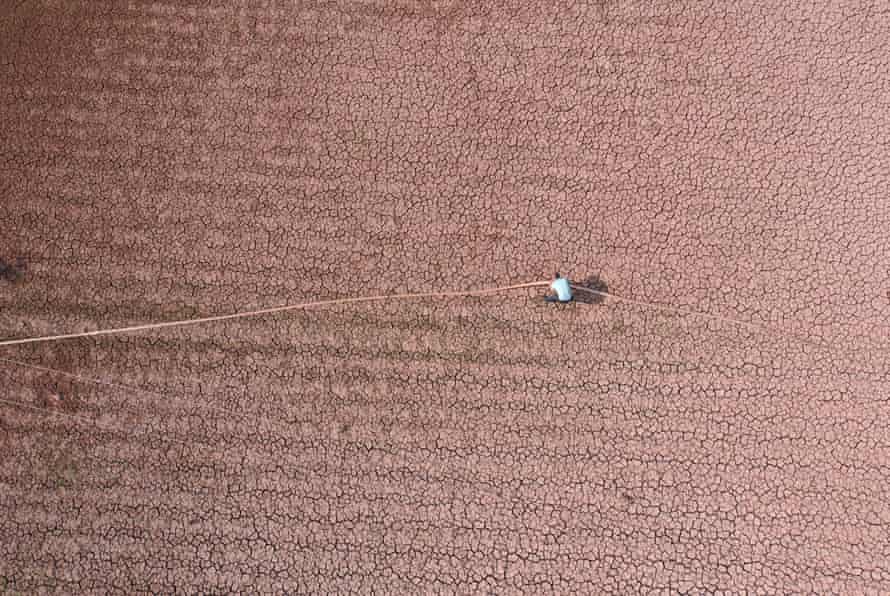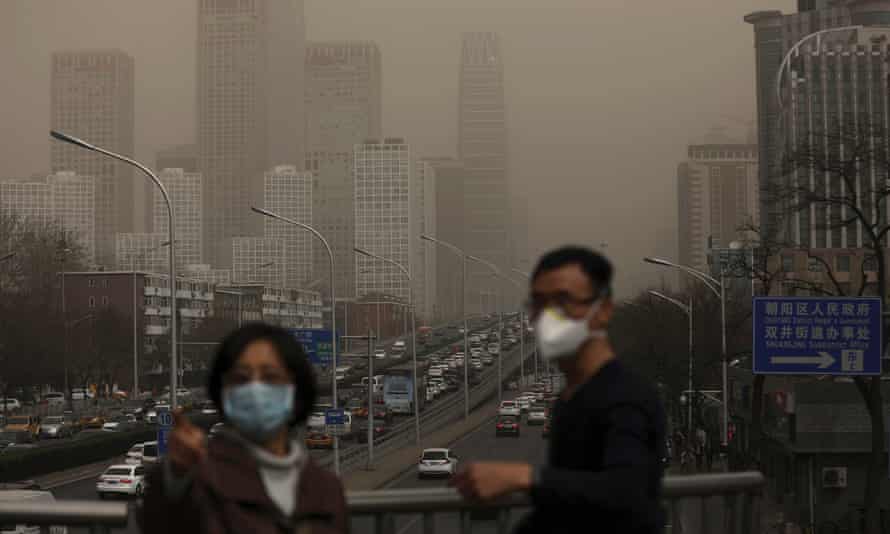EXCERPT LONG READ
100 days of warning:
by Lois Beckett in Los Angeles
Fri 15 Jan 2021
One hundred days before Dave Patrick Underwood was murdered on 29 May, a group of analysts who monitor online extremism concluded that an attack like the one that killed him was coming.
An anti-government movement intent on killing law enforcement officers had been growing rapidly on social media, the analysts at the Network Contagion Research Institute warned.
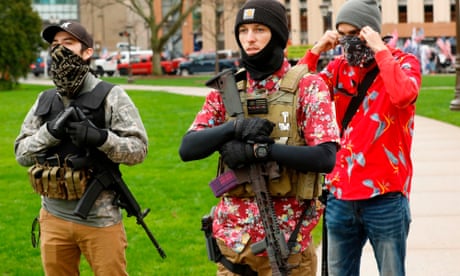
Building on the work of other analysts, the researchers had identified Facebook groups where thousands of members obsessed over the idea of an imminent American civil war called “the Boogaloo”, displaying photographs of rifles and combat equipment, sharing advice for making weapons and posting memes about killing police and federal officials. The Facebook groups were particularly dangerous, the researchers concluded, because they were helping to build local connections between nascent domestic extremists. The movement appeared to be successfully recruiting members of the US military.
Facebook responded to findings that it was “studying trends” around the use of the word “Boogaloo” on its platforms, and that it would remove any content that violated its rules against inciting hatred or violence. Over the next few months, a spokesperson said, it would remove 800 individual Boogaloo-related posts that violated its policies. But it did not ban the Boogaloo movement from its platform, or take the majority of the Boogaloo groups down.
Two months later, another report warned of the Boogaloo movement’s “explicit threats of violence to government authorities”. There were now at least 125 Boogaloo groups on Facebook, the Tech Transparency Project said. The groups had added tens of thousands of members in the last 30 days alone, as coronavirus lockdown measures made some Americans furious about what they perceived as government “tyranny”. More than half of these Facebook groups had been created since February.
This time, Facebook said it had removed some groups and pages that used Boogaloo-related terms for violating Facebook policies. But none of the Facebook groups explicitly mentioned in the Tech Transparency report had been taken down, HuffPost reported, even though the online rhetoric was already translating into action: earlier in April, Texas police arrested Aaron Swenson, a man who had reportedly “liked” more than a dozen Boogaloo-related pages, and who police said had been livestreaming himself on Facebook as he drove around looking for a cop to execute.
‘Show them the real targets’
It was just after 7am on 28 May, and Steven Carrillo, a US air force sergeant, was already awake, posting on Facebook about a “great opportunity” to attack federal agents, according to federal prosecutors.
Carrillo, 32, was an active duty member of the air force, assigned to Travis air force base in California. Two years before, he had taken part in an intensive training session to become part of an elite air force security unit, the Phoenix Ravens, who were prepared to protect aircraft from attacks in volatile situations
But three days after George Floyd was killed in Minneapolis, as protests against police violence spread across the country, prosecutors allege, Carrillo was preparing to put his military training to use not in protecting fellow service members, but in staging attacks against government officers.
“It’s our coast now this needs to be nationwide. It’s a great opportunity to target the specialty soup bois. Keep that energy going,” Carrillo allegedly wrote on Facebook, sharing a link to a video of a crowd attacking California highway patrol officers, with two flame emojis.
The “specialty soup bois”, according to the complaint, was a phrase Boogaloo groups used to refer to federal law enforcement agents who work for agencies such as the ATF and the FBI – agencies with names that are an “alphabet soup” of acronyms. Less than 20 minutes later, another Facebook user responded. “Let’s boogie,” Robert Alvin Justus, a 30-year-old from Millbrae, California, wrote, according to prosecutors.
The next morning, prosecutors allege, Carrillo posted more calls to action on Facebook. He was interested in the unfolding protests against killings of civilians by police, but he did not consider himself one of the protesters.
“Go to the riots and support our own cause. Show them the real targets,” Carrillo allegedly wrote. “Use their anger to fuel our fire. Think outside the box. We have mobs of angry people to use to our advantage.”
That night, 29 May, prosecutors allege, Justus met Carrillo at a Bay Area metro station, with the plan of driving together to an anti-police violence protest in Oakland.
The two men parked across from a guard post outside the federal courthouse downtown. Just two blocks away, thousands of protesters were marching and chanting on the street that led to Oakland’s police headquarters in a furious demonstration that would last until late in the night. But the guard outpost itself was modest, a nondescript structure next to a driveway in a neighborhood full of office buildings. Surveillance footage would later show Justus emerging from the van for a smoke break, then going back inside, prosecutors say

Someone fires at a security kiosk at the Ronald V Dellums Federal Building in Oakland. Steven Carrillo allegedly shot and killed Dave Patrick Underwood in the incident.
Dave Patrick Underwood was working as one of the security officers at the federal courthouse that night, as a contractor for the Department of Homeland Security. Underwood, 53, had grown up in the Bay Area. He was a former star high school athlete, with a corny sense of humor and a sharp sense of style. As an adult, he had moved in with his ageing parents to care for them. His older sister would later describe how Underwood had been with their mother as she was dying, and when she fell to the ground, he picked her up, and carried her to her bed, because he knew that was where she had wanted to die.
“Patrick was a good man, who only wanted to help others and keep his community safe,” his sister, Angela Underwood Jacobs, said later.
Just before 9.45pm, according to federal prosecutors, as the white van pulled away from the guard post, its side door opened, and Carrillo opened fire on the security officers outside the courthouse. Underwood, shot multiple times, was killed. Another officer was seriously injured.
Carrillo, Justus would allegedly tell investigators, had been thrilled by the shooting. “Did you see how they fucking fell?” Justus allegedly recalled him saying.
Calls for action
The targeted attack on two federal officers in the middle of a protest against police violence sparked nationwide headlines. Underwood, who was black, was mourned. His death was also seized on as a political talking point: a black law enforcement officer had apparently become the victim of nationwide protests against law enforcement killings of black civilians.
As politicians talked about Underwood’s murder and debated what it said about the Black Lives Matter movement, Justus went home, prosecutors allege. But Carrillo’s killing spree, prosecutors allege, was not finished. And he remained in contact with at least one other “Boogaloo boi”, sending him money and boasting about what he had already accomplished.
Across the country, prosecutors allege, Boogaloo boys were plotting how to use the George Floyd protests to sow chaos, and posting on Facebook encouraging each other to take action.
